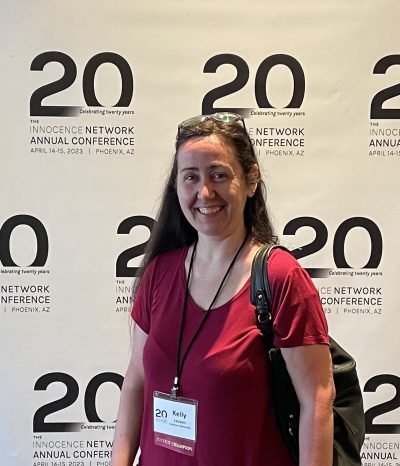Wrongful convictions are a horrendous reality within our criminal justice system, but it is one we rarely hear or talk about. Some high-profile cases make the headlines, but rarely do we take the time to appreciate the scope of the problem. The aim of this series is to critically examine the ugly underbelly of the criminal justice system to better understand how these tragic errors happen. Through the use of case examples, learners will become familiar with the various sociological, legal and psychological factors that have been identified as contributing to a wrongful conviction.
Dates: Fridays, May 10-June 14, 2024.
Time: 1:30pm-3:30pm
Location: Online, via Zoom
Prior to the first day of the series, registered participants will receive a Welcome Email. That email will include the Zoom link and instructions on accessing the series material (slides and if applicable, lecture recordings).
Topics:
- Week 1: Understanding wrongful convictions, what they say about our justice system,and the problems they create. Before delving too deeply into wrongful convictions, first we must have a firm understanding of the problem. In this class, we will take an overarching look at wrongful convictions to be able to better appreciate what they say about our justice system.
- Week 2: Systemic Factors – Tunnel Vision & Public Pressure. In this class, we will begin to delve into the main factors identified as leading to a wrongful conviction. Tunnel vision has been identified as a contributing factor in most cases of Canadian wrongful convictions, and it will be examined in relation to some of the more infamous cases such as Guy Paul Morin and David Milgaard.
- Week 3: Eyewitness Identification. The Innocence Project has found that mistaken eyewitness identification has been a contributing factor in at least 70% of wrongful convictions. In this class, we will look at how and why these good-faithed errors happen so frequently and the consequences they can have on innocent individuals such as Michel Dumont and Robert Baltovich.
- Week 4: Bad Science. Aside from eyewitness identification, faulty forensics have been identified by the Innocence Project as the most common error found in wrongful conviction cases. The problems with forensics can manifestthemselves in many ways, and in this class, we will look at some of the most egregious errors with special attention to the victims of Dr. Charles Smith.
- Week 5: False Confessions and Guilty Pleas. Contrary to popular belief, people regularly confess to things they didn’t do. In this class, we will focus on why false confessions happen and why people falsely enter guilty pleas. Special attention will be given to the cases of Romeo Phillion and Kyle Unger
- Week 6: Can we fix wrongful convictions? In this class, we will discuss some of the existing attempts at addressing the problem of wrongful convictions and whether meaningful changes can be made to reduce their occurrence in our justice system.
About the Lecturer: The idea of the justice system turning on the very people it is intended to protect is terrifying, yet all too often this is a reality. After hearing about one case of wrongful conviction in undergraduate studies, Kelly Lauzon’s passion was ignited, and set on a path to examine this issue more closely. Today, Kelly is a PhD candidate and contract instructor in the department of Law and Legal Studies at Carleton University. Kelly is also co-host and co-creator of the podcast Real Life Wrongs.

Policies: Please review the Lifelong Learning Policies